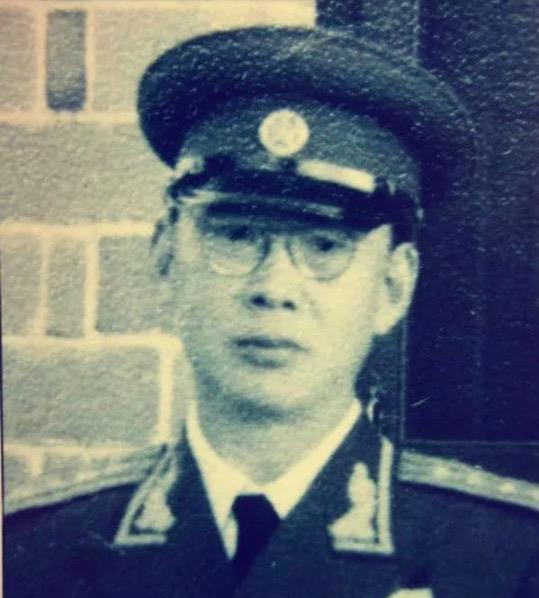During the period of the War of Liberation, most of the Nationalist troops who participated in the uprising only held an uprising at the instigation of the underground organization of our Party, and the generals of the Nationalist Army who took the initiative to seek an uprising by the underground party organization of our Party were very few, and he belonged to the very few generals who took the initiative to ask for the insurrection.

His name is Han Meicun, and he is Du Yuming's beloved general.
Han Meicun is a native of Huarong, Hunan, born in 1901, studied in the third phase of the Whampoa Military Academy, the Officer Corps of the Central Military Academy, and then served in the du Yuming Department of the old Jiang Yuan for many years, he participated in the Northern Expedition, the Great Wall War, the Battle of Taierzhuang, the Battle of Wuhan, the Battle of Changsha, etc. during the War of Resistance Against Japanese Aggression.
However, in October 1941, Han Meicun claimed to be sick and went to Guilin, Guangxi Province, to recuperate. Why? It turned out that although he had served in the old Chiang Kai-shek's concubines for so many years, he had the feeling that Chiang Kai-shek's generals were all "nepotistic" and that those who were relatives were arrogant and fearless, proud and incompetent, corrupt, and afraid of death. In desperation, there is only the choice to leave.
During the period of settling in Guilin, in addition to reading a large number of progressive books and periodicals, Han Meicun also got to know his fellow Huarong compatriots and our underground party members Yang Mingqing, Deng Junhong, Xiao Yiping, and others. He even wanted to go to Yan'an, only because the distance was too far, and the family could not go with him, so he had to stay in Guilin and wait for the opportunity to do action.
In May 1945, Han Meicun, who had come to Kunming on a second mission, was sponsored by Du Yuming to serve as a major general in the headquarters of the Kunming Defense Commander and commander of the directly subordinate forces. After Japan's surrender, he was ordered to lead nearly 10,000 people from the "Northeast Security Commander's Headquarters", their families, and directly subordinate troops to Jinzhou in the northeast.
In order to give Han Meicun a chance to get rich, Du Yuming asked him to become mayor of Fuxin and concurrently serve as the commander of the 3rd Northeast Security Detachment, but after he became mayor, he changed the corrupt style of the Kuomintang accepting large members, but instead adopted a series of progressive measures to suppress the powerful and strong, care for the people, protect progressives and the captured personnel in the neighboring liberated areas, and become a "clean" mayor, which made the surrounding officials very unhappy, so he spread rumors that he was hanging up the brand of the Kuomintang receiving personnel and doing communist work.
In addition to doing the façade work such as government affairs, Han Meicun also has an unfulfilled wish to find an underground party and seek an uprising to join the revolutionary ranks. Therefore, he asked yang Mingqing, the chief secretary next to him, to write a letter to Deng Junhong, who was far away in Hunan, asking him to assist in the work. After Deng Junhong arrived in Fuxin, he applied to the Hunan Work Committee to send Zhou Taixuan, his wife Tao Tao, as well as Hu Liangjie, Deng Jili, and others with rich underground work experience to Fuxin to find the local underground party and the Northeast Democratic United Army that was active around him.
Under the historical conditions at that time, they took the initiative to search for the underground party in this way, and it was easy to be mistaken for a Kuomintang agent, so several contacts failed to achieve the goal. Later, after contacting the 17th Brigade of the Jichareliao Military Region, before there was time for an uprising, Han Meicun received an order from his superiors to move his troops to Lingyuan and undertake the task of protecting the road of the Jincheng Railway, which made his uprising plan fall short, so what happened later?
Although the uprising plan failed, Han Meicun was still not discouraged, and after arriving in Lingyuan, he continued to send Zhou Taixuan and others to look for our underground party, and at the end of March 1947, Zhou Taixuan finally connected with the 16th Brigade of the Jicha Reliao Military Region and was received by the brigade commander Zhang Defa and the deputy political commissar Cao Delian. Zhou Taixuan introduced General Han Meicun's determination to find the light after he arrived in the northeast and the actions he took, which touched the commander of our army, so after several investigations and reconnaissance, he deployed the uprising plan.
On May 1, 1947, with the cooperation of the 16th Brigade of the Jichareliao Military Region, Han Meicun finally realized his wish and embarked on a bright road.
After the Lingyuan Uprising, Han Meicun successively served as the commander of the 1st Independent Brigade of the National Salvation Army of the Rehe Democratic Coalition Army, the commander of the 6th Independent Division of the Northeast Democratic Coalition Army, the commander of the 161st Division of the 48th Army of Dongye, the commander of the Fuliang Military Subdistrict in Jiangxi Province, the deputy director of the Agricultural Reclamation Department of Jiangxi Province, and the vice president of the Huangpu Military Academy Alumni Association of Nanjing City.
More Exciting Articles:
He was the commander of the 46th Army of the Nationalist Army, and he was once "missing" in the Battle of Laiwu, so where did he go?
He was a rear admiral of the Nationalist Navy, a hero of the anti-Japanese mine control, and why did he become the deputy commander of logistics of our navy?